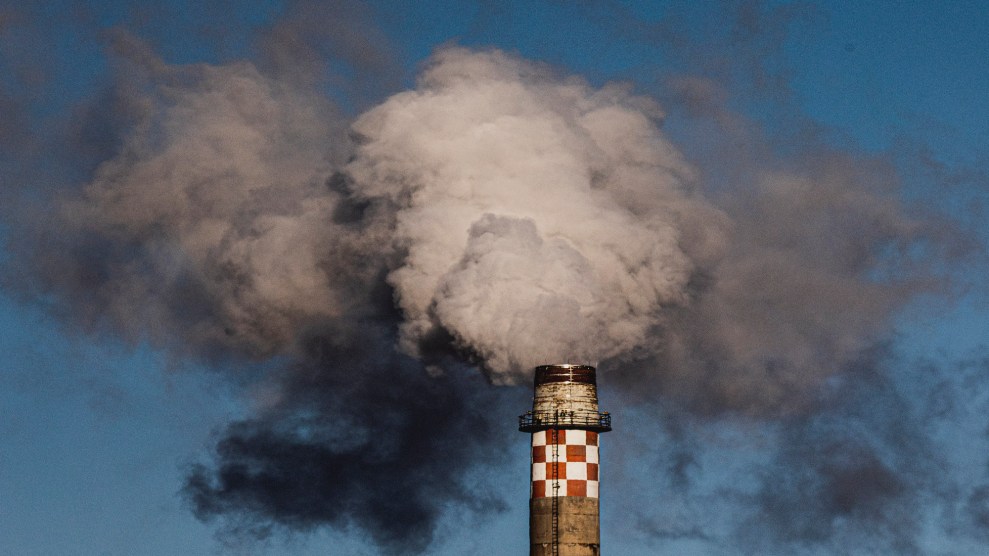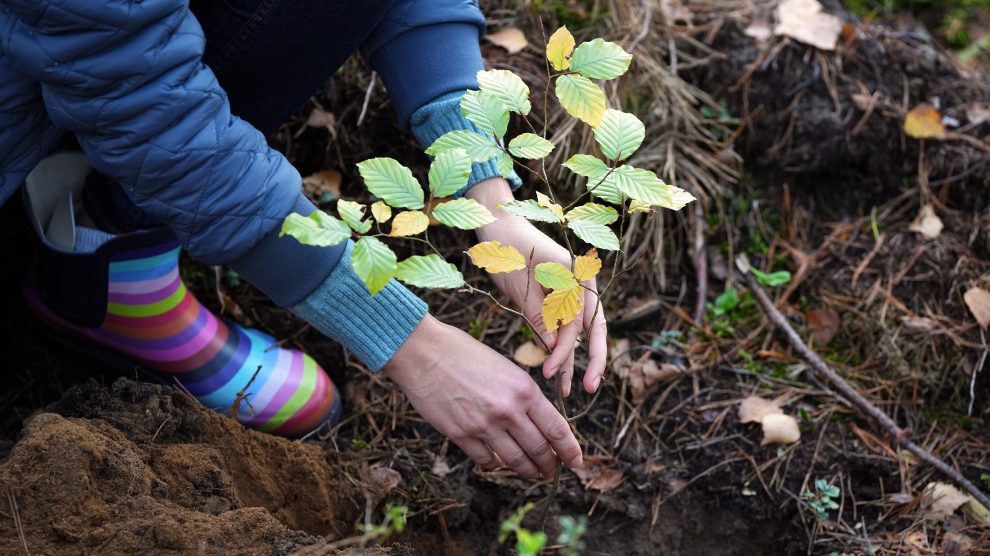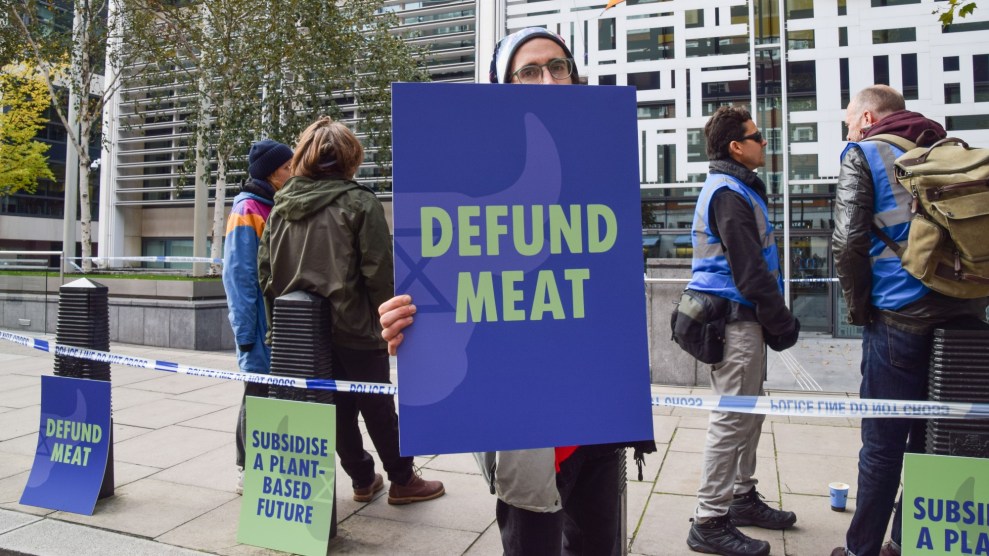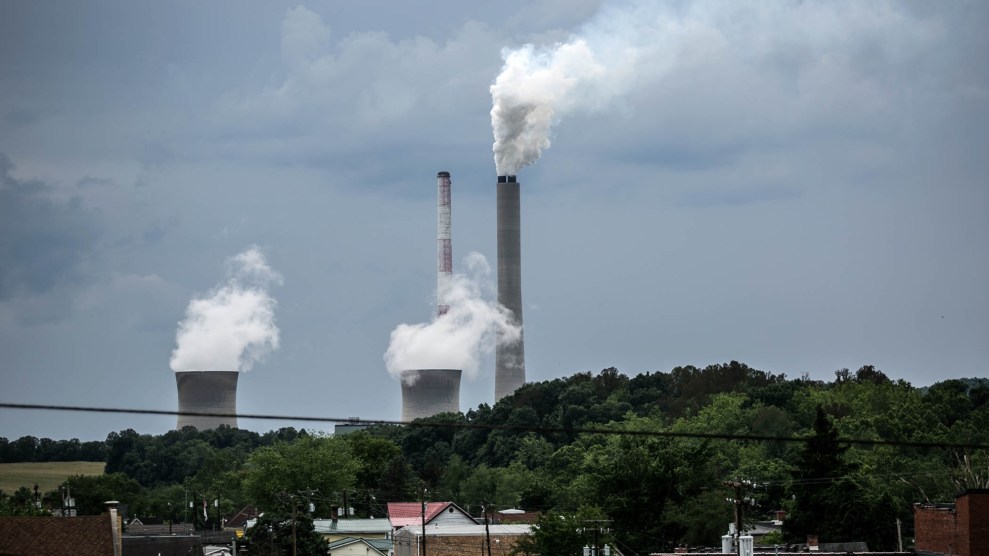
Florian Gaertner/Photothek/Getty
This story was originally published by the Guardian and is reproduced here as part of the Climate Desk collaboration.
The difference between the carbon emissions of the rich and the poor within a country is now greater than the differences in emissions between countries, data shows.
The finding is further evidence of the growing divide between the “polluting elite” of rich people around the world, and the relatively low responsibility for emissions among the rest of the population.
It also shows there is plenty of room for the poorest in the world to increase their greenhouse gas emissions if needed to reach prosperity, if rich people globally—including some in developing countries—reduce theirs, the analysis has found.
Most global climate policy has focused on the difference between developed and developing countries, and their current and historical responsibility for greenhouse gas emissions. But a growing body of work suggests that a “polluting elite” of those on the highest incomes globally are vastly outweighing the emissions of the poor.
This has profound consequences for climate action, as it shows that people on low incomes within developed countries are contributing less to the climate crisis, while rich people in developing countries have much bigger carbon footprints than was previously acknowledged.
In a report entitled Climate Inequality Report 2023, economists from the World Inequality Lab dissect where carbon emissions are currently coming from. The World Inequality Lab is co-directed by the influential economist Thomas Piketty, the author of Capital in the Twenty-First Century, whose work following the financial crisis more than a decade ago helped to popularise the idea of “the 1%,” a global high-income group whose interests are favoured by current economic systems.
The report found that “carbon inequalities within countries now appear to be greater than carbon inequalities between countries. The consumption and investment patterns of a relatively small group of the population directly or indirectly contribute disproportionately to greenhouse gases. While cross-country emission inequalities remain sizeable, overall inequality in global emissions is now mostly explained by within-country inequalities by some indicators.”
The report also found that although overseas climate aid—a key focus of the recent Cop27 climate negotiations—would be needed to help developing countries reduce their emissions, it would not be enough and developing countries also needed to reform their domestic tax systems to redistribute more from the wealthy.
The authors suggest windfall taxes on excess profits could help to fund low-carbon investment, as well as progressive taxation in countries, including developing countries, which often under-tax rich citizens and companies.
Large emerging economies—such as China—now bore an increasing responsibility for the stock of carbon dioxide in the atmosphere, the report added. They must now produce clear plans on reaching net zero emissions.
Peter Newell, a professor of international relations at the University of Sussex, who has worked extensively on the issue of the polluting elite, and was not involved in the report, said it showed that patterns of consumption needed to change to tackle the climate crisis.
“Inequalities in emissions matter because carbon inequality within countries accounts for the bulk of global carbon emissions inequality between those generating the emissions and those suffering the worst effects of global heating and who have the least capacity to adapt,” he said. “Patterns of consumption and investment by the polluter elite, which drive these unequal contributions to climate change, need to be reduced and redirected respectively. This is a huge challenge.”
But he added that the report also showed how tackling global poverty could be achieved without increasing greenhouse gas emissions overall, a key point as the world must reduce emissions by about half by 2030 in order to limit global temperature rises to 1.5C above pre-industrial levels.
Newell told the Guardian: The report shows that “tackling global poverty will not overshoot global carbon budgets, as is often claimed. Failure to address the power and privilege of the polluter elite will. These are related because reducing carbon consumption at the top can free up carbon space to lift people out of poverty.”
The solutions, he said, lay in changing government policy to focus on the polluting elite, and devise a more equitable—and efficient—approach to emissions cuts.
“Combinations of progressive taxation, including on highly polluting activities, and the redeployment of subsidies for fossil fuels can help strengthen the welfare state and provide social protection to help bridge some of these gaps,” he said. “This critical report underscores once again the need for a just transition to a low carbon economy which reflects unequal responsibility for causing the climate crisis and uneven capacity to help address it.”
Last year, a paper by the PIK Potsdam Institute for Climate Research, coauthored by the Nobel prize-winning economist Joseph Stiglitz, found that taxing the rich was one of the best ways to fund a shift to a low-carbon economy.















